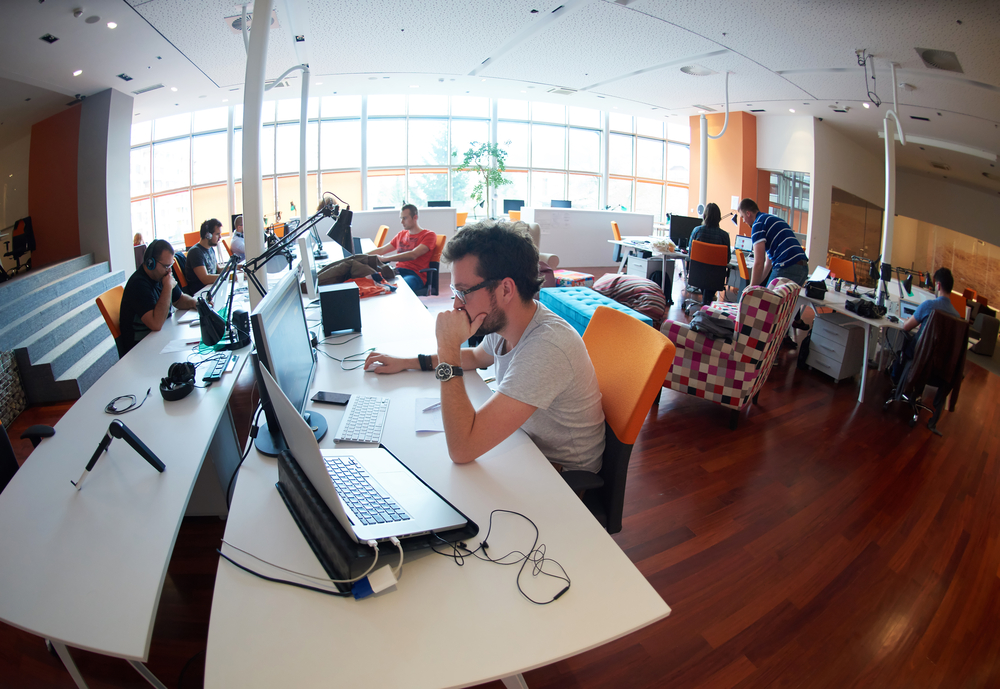White&Green was set up by mum Sari and her two daughters Rebecca and Danielle. It has grown to become a very successful bedding company. Here, Rebecca talks to ThinkBusiness about the journey of White&Green to date.

How did White&Green come about?
As an interior designer, Sari was becoming increasingly frustrated with the lack of quality bed sheets on the market. Shopping for bed linen for her clients involved traipsing through large department stores, swamped by endless shelves of bed linen in fancy packaging that didn’t necessarily translate to high-quality products. So, she set about creating a range of really high-quality bedding that consumers could trust and that didn’t cost the earth.
Running a family business has its dangers, how did you each of you come about to create the company?
Sari pitched the idea for White&Green to us as she saw it as an opportunity for myself and Danielle to build careers in the areas we are passionate about. We decided to make our production 100% certified organic and Fairtrade and that I would take the reins on this, and that our products would be cleverly designed so they are luxury quality, but classic (they won’t go out of fashion) and durable, for the busy consumer. Danielle and Sari decided to take the reins in product development. Certainly, running a family company is difficult as it crosses the natural boundaries of family relationships. Thankfully, we have learnt to divide up certain areas of the company based on our passions.
“(We) set about creating a range of really high-quality bedding that consumers could trust and that didn’t cost the earth.”
In a competitive market, how do you make the company stand out?
No doubt about it, bed linen is not the most innovative product in the world. Yet, ask any consumer their favourite brand of bed linen, and most wouldn’t be able to answer. That was our goal – to create one range of high-quality, affordable bed linen that consumers could trust. The quality of our product speaks for itself and we’ve had zero returns in a year and a half of trading.
What’s your USP?
Our USP definitely is the family aspect of our brand. In the era of globalisation, commercialisation and huge faceless brands with questionable supply chain management, consumers are ever searching for smaller brands with a story they can relate to.
“The quality of our product speaks for itself and we’ve had zero returns in a year and a half of trading.”
What impact did Dragon’s Den give the brand?
We were really sceptical about appearing on Dragon’s Den and we had very heated discussions about it. We were nervous about putting ourselves out there so publically but we are really happy that we did it in the end. We had nothing but a positive experience and it was a fantastic marketing platform for us.
Social media has a massive influence on your brand, how did you grow this?
Danielle and I both attended various digital media courses but in the end, we learnt the most by getting stuck in ourselves and figuring things out by trial and error. The content we share is very natural and I must admit that we probably should plan more than we do. Really eye-catching imagery is probably our most important social media asset.
Do you think Brexit will have any influence on your business?
We are still unsure as to how Brexit will specifically affect us. Our company is heavily reliant on working with the UK for a number of reasons as we share the same language and the same bed sizes. Right now, we are forging ahead with marketing in the UK and we’ll make back up plans should the need arise down the line.
Related Resource
-
Bank of Ireland is welcoming new customers every day – funding investments, working capital and expansions across multiple sectors. To learn more, click here
-
Listen to the ThinkBusiness Podcast for business insights and inspiration. All episodes are here. You can also listen to the Podcast on:
-
Spotify
-
SoundCloud
-
Apple





